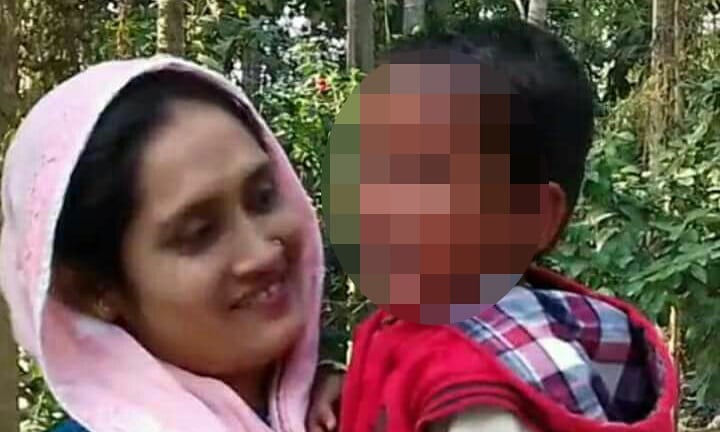Hindu and Muslim families whose babies were switched at birth decide to keep them to raise as their own
Couples intend to raise each other’s offspring

Your support helps us to tell the story
From reproductive rights to climate change to Big Tech, The Independent is on the ground when the story is developing. Whether it's investigating the financials of Elon Musk's pro-Trump PAC or producing our latest documentary, 'The A Word', which shines a light on the American women fighting for reproductive rights, we know how important it is to parse out the facts from the messaging.
At such a critical moment in US history, we need reporters on the ground. Your donation allows us to keep sending journalists to speak to both sides of the story.
The Independent is trusted by Americans across the entire political spectrum. And unlike many other quality news outlets, we choose not to lock Americans out of our reporting and analysis with paywalls. We believe quality journalism should be available to everyone, paid for by those who can afford it.
Your support makes all the difference.Two children born into separate Hindu and Muslim families and switched at birth are refusing to change back after DNA results proved their parentage.
After heading to court earlier this month to carry out the exchange, the toddlers refused to leave the parents they had grown up with.
On Wednesday, the two families will tell a judge in the north-eastern Indian state of Assam that they intend to raise each other’s offspring, according to the BBC.
The accidental switch was confirmed when Shahabuddin Ahmed received the test results showing no genetic match between his wife, Salma Parbin, and his legal son, Jonait.
Ms Parbin said she doubted Jonait was her son the moment she first set eyes on him shortly after he was born almost three years ago at the Mangaldai Civil Hospital in March 2015.
"When I saw his face, I had doubts. I remembered the face of the other woman in the labour room and he resembled her. I could make out from his eyes. He's got small eyes, no-one in my family has eyes like that,” she told the BBC.
When Mr Ahmed told the hospital about his wife’s suspicions, he said an employee dismissed it out of hand and suggested his wife seek psychiatric help.
So he submitted a right to information petition – India’s equivalent to a freedom of information request – asking the hospital for details of all the babies born around 7am the same day Jonait was born.
After receiving the details of seven mothers, he said a “tribal lady” particularly stood out, as she and his wife had given birth to boys just five minutes apart, and both babies weighed 6.6lb.
After writing a letter to the Hindu couple - Anil and Shewali Boro - Mr Ahmed, Ms Parbin and Jonait travelled to meet them and their child, Riyan Chandra, in a village 19 miles away.
Ms Boro told the BBC the first time she saw Jonait, she “felt very sad and cried” after noticing the resemblance to her husband.
“We are Bodo tribals, we are not like the other Assamese or Muslim people. Our eyes slant upwards, our cheeks and hands are plumper. We are different. We have Mongolian features,” she said.
Ms Parbin said she knew Riyan was her child immediately and wanted to swap the children right away, but Mr Boro’s mother rejected the proposal.
After a forensic laboratory proved the hospital’s mistake, the couples arrived at court, but realised they could not go through with the swap.
"The magistrate told us that if we wanted to swap the babies we could do it, but we said we won't do it. Because we've raised them for the past three years, we can't just let them go," Ms Parbin.
"Also, Jonait was crying. He was in my brother-in-law's lap, he held him tightly, wrapped his arms around his neck and refused to leave."
Riyan also reportedly began crying and refused to let go of Ms Boro.
Both couples told the BBC they did not believe the boys would cope well if they were forced to swap now. They said when the children grow older, they will leave the decision to them as to where they live.
The families plan to stay in touch and become friends to make sure they can be a part of the life of their biological children.
Join our commenting forum
Join thought-provoking conversations, follow other Independent readers and see their replies
Comments